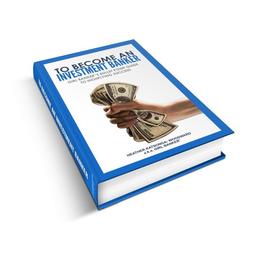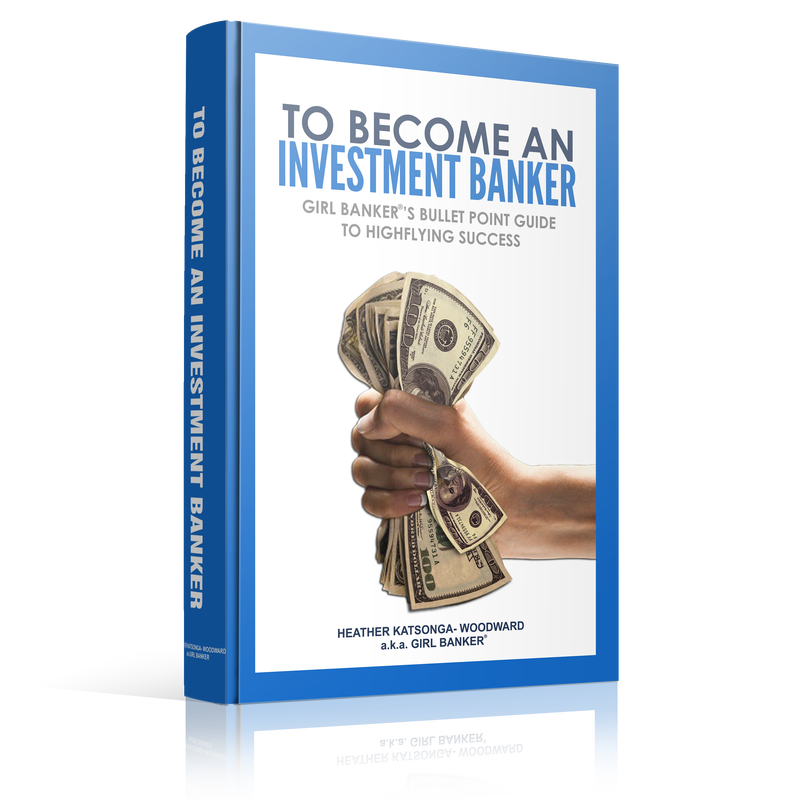|
by Girl Banker®
Investment bankers don’t invest although the name may suggest it. If your day job involves advising people what to invest their funds in: equities versus debt versus real estate and so on, you are an “asset manager”. Asset management is not investment banking.
Investment bankers also don’t give out loans or handle money of any form. Whilst investment bankers might structure loans, they don’t give them out themselves. Handing out loans is the function of a commercial or retail banker. Some investment banks have their own commercial banking units, others do not. Investment bankers fall into two categories: corporate finance bankers (also referred to as classic investment banking) and capital markets bankers (product salespeople and traders). I will describe each category in turn. 
CORPORATE FINANCE
Corporate finance is concerned with giving advice on strategy, valuation and financing. I myself spent two years in Corporate Finance at Goldman Sachs in London. Strategy If a company wants to merge with or takeover another company, so called, Mergers and Acquisitions, or if they want to divest a division or find a seller for the entire company as a going concern they would seek the advice of an investment bank. M&A bankers have specialized knowledge of a specific sector and are in a position to relay the best way of going about any corporate strategic initiative. Valuation As part of its strategic considerations, a company will contemplate its own value, the value of a target or the market value of its competitors. Investment bankers are trained in all current, relevant valuation methodologies and would be able to provide this information. Key valuation metrics include discounted cash flow analysis which shows the value of a company on a stand-alone basis and a variety of ratios that show a company’s value in comparison to other similar companies. Relative valuation metrics look at the company’s value relative to sales, or the share price relative to earnings or the amount of debt the company has compared to its cash flow and earnings. Relative valuation tends to focus on companies that are listed or have recently been involved in an acquisition because data is more readily available. However, using less specific assumptions the same analysis can be carried out for a privately held entity. Financing Particularly in the developed world, financing is not as simple as going to a bank to get a loan. There are a plethora of instruments that can be used to fund a business. Loans themselves can be structured in a variety of different ways each of which will have different tax, legal and rating agency consequences. Rather than attempt to secure bank lending, a company can alternatively issue a bond to investors. Bond structures themselves are limited only by imagination. They are bespoke instruments that can be exactly structured to satisfy the goals of a firm, it’s expected growth profile and its expectations of future changes in market variables particularly interest rates and foreign exchange, FX. This brings us neatly to the second category of bankers. 
CAPITAL MARKETS
Compared to Classic IB, capital markets banking is relatively new. It took off in the early 80s and has grown massively particularly as internet technology and the ease of communication has improved. Capital markets bankers are financial product engineers. Product specialism is split into Equity Capital Markets, ECM, which includes cash equities and equity derivatives and Debt Capital Markets, DCM, sometimes referred to as Fixed Income, Currency and Commodities, FICC. I have spent the best part of 5 years working in debt capital markets as a derivatives structurer at HSBC. You will notice one difference between corporate finance and capital markets immediately. Whilst there may be many different sectors and country teams in corporate finance, the analytical tools they use are the same. Valuation fundamentals do not change. However, the various teams in the capital markets each deal with a different product so the tools and knowledge change completely from one team to the next. Within capital markets salespeople market and often also price/structure products whilst traders execute any sales and manage the risk/exposure thereof. Some traders trade based on perceived market opportunities rather than off of the back of client orders. These are proprietary traders. Their aim is to generate a return for their bank based on market expectations (speculation) or perceived mispricing (arbitrage). I will very briefly describe a few teams. Cash equities Have a firm understanding of the equity research within a specific sector. Based on their understanding and interpretation of equity research they can give advice regarding which shares are a good buy, which are not and which ones are better than others. Equity derivatives You don’t have to buy shares to gain exposure to a company. Equity derivatives allow you to express your view of a company, good or bad, without buying them and if that view is realized you make a profit. Buying and selling equity options is cheaper than transacting in the shares themselves. Loan or bond origination and structuring Originators have a relationship with investors that are interested in buy bonds (or loans). They use their contacts and their knowledge of current bond (or loan) markets to structure a bond prospectus (a detailed term sheet) that will get a company the most traction with investors. Rates Most companies have some debt on their balance sheet. Rates specialists help companies to protect themselves against adverse movements in rates and to make optimal funding decisions based on interest rates in different countries and the expected evolution of rates over time. FX Many companies, even small ones, have multinational exposure. They might sell goods across several countries, buy supplies or even raise funds from abroad. FX specialists help companies to protect themselves against adverse movements in FX and to manage funds across borders. This can be a very important requirement for a company especially if they have exposure to a country with many rules and exchange controls. China is one such country, in the last few years as they have been loosening their currency controls regulation has been changing rapidly. Commodities Commodity specialists help companies to protect themselves against adverse movements in a given commodity. They also facilitate investors’ desire to speculate on commodity prices. Commonly traded commodities include oil, precious metals and agricultural produce such as wheat. Credit Credit specialists allow investors to buy ‘insurance’ against a company’s failure using ‘credit default swaps’. A huge amount can be written about each function within an investment bank and I provide a more in-depth overview in To Become an Investment Banker. Nonetheless, the brief descriptions above should give you a flavor for how front-line investment banking is structured. If you have any questions please contact me.
4 Comments
Harry
11/8/2016 01:15:54 pm
This is great stuff GirlBanker!
Reply
Heather as "Girl Banker"
11/8/2016 01:16:18 pm
Thank you. I appreciate that.
Reply
Larry Jones
11/8/2016 01:17:02 pm
Hi GirlBanker. I first want to compliment on your article. Thos is very insightful and taught me some things I had not known before. I am an aspiring investment banker, but I am only a sophmore in college with a little baggage that I am trying to conquer. I have also recognized your three packages, and the Ferrari package instantly caught my attention. Is there any advice you can give me?
Reply
richmond
11/8/2016 01:17:24 pm
thanks so much, i have really been enlightened. i hope to receiving more e-mails from you. Am really crazy about been an investment banker in the next few years to come and i really appreciate your generous effort to broaden my understanding. best of luck
Reply
Leave a Reply. |
Girl Banker®I created my investment banking blog in 2012 as soon as I resigned from i-banking & published my book, To Become An Investment Banker.
Initially published at girlbanker.com, all posts were later subsumed into my personal website under katsonga.com/GirlBanker. With 7 years of front office i-banking experience from Goldman Sachs and HSBC, in both classic IBD (corporate finance) and Derivatives (DCM / FICC), the aim of GirlBanker.com was to make it as straight-forward as possible to get into a top tier investment bank. I'm also a CFA survivor having passed all three levels on the first attempt within 18 months - the shortest time possible. Categories
All
Archives
August 2017
|
Heather Katsonga-Woodward, a massive personal finance fanatic.
** All views expressed are my own and not those of any employer, past or present. ** Please get professional advice before re-arranging your personal finances.



 RSS Feed
RSS Feed





